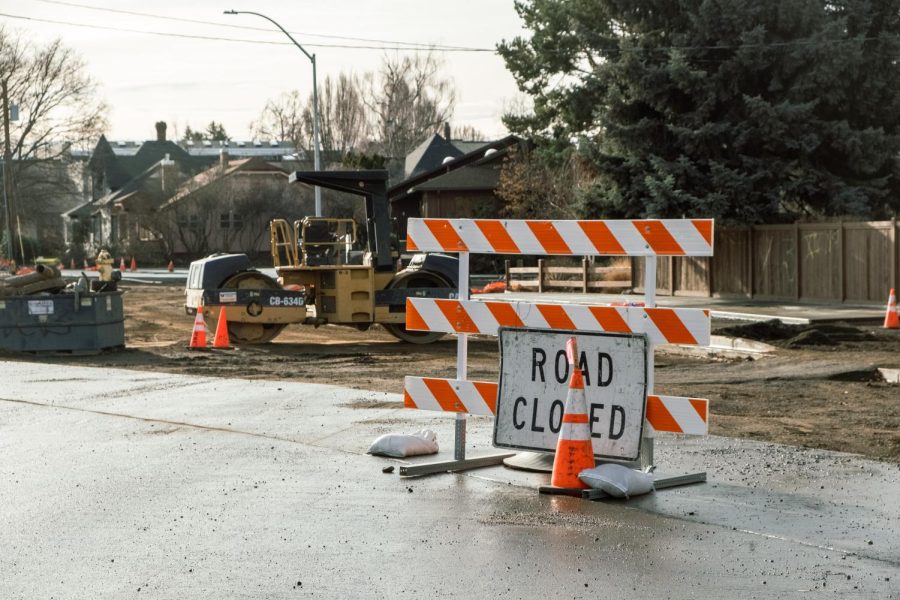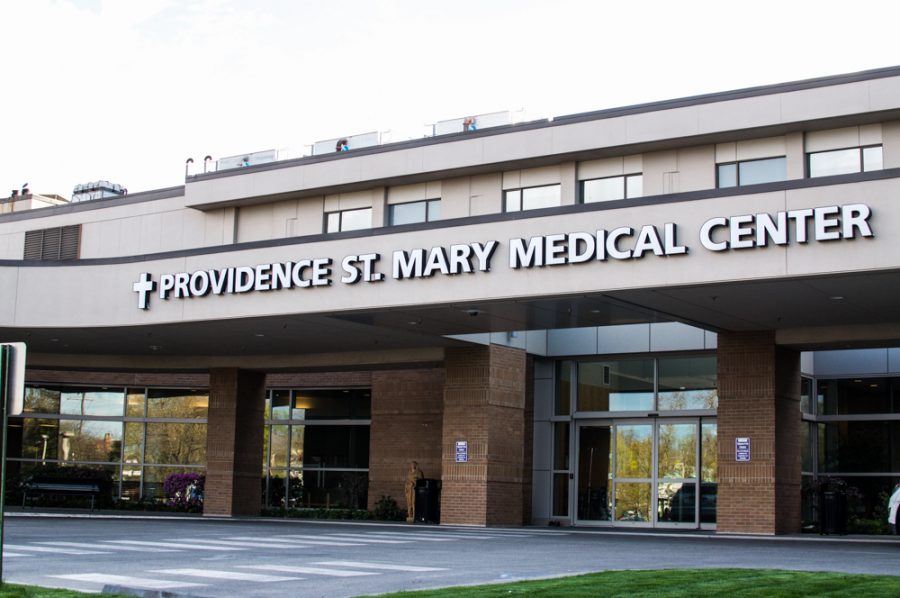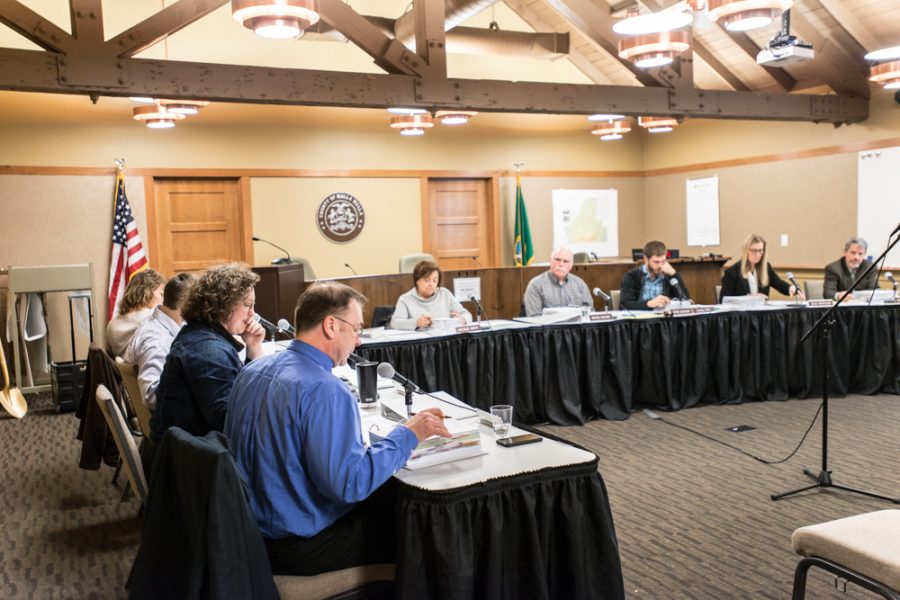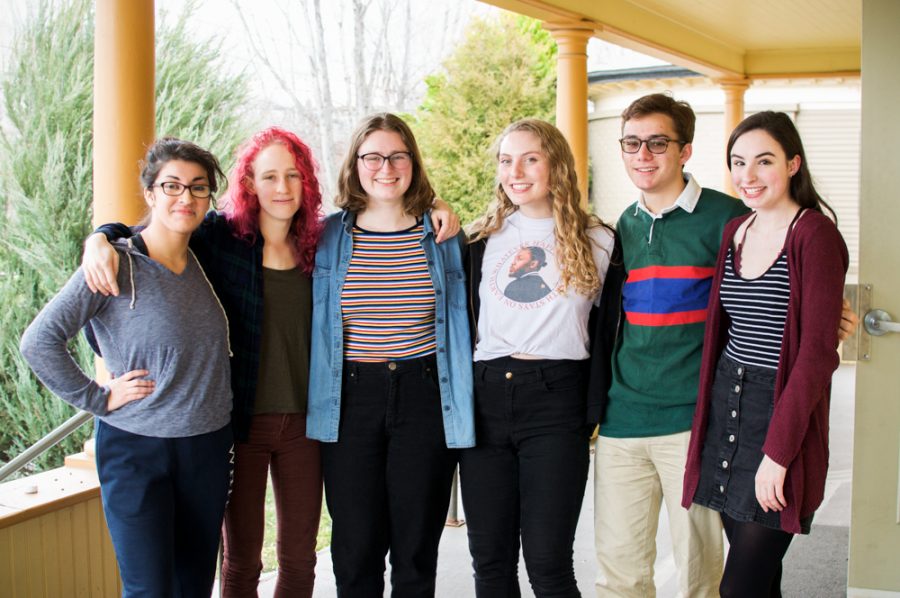
Walla Walla’s Salvation Army is headed towards exciting changes as it constructs a new food bank and a kitchen where it will offer cooking classes.
The project was prompted by the desire to provide more services for locals who rely on the food bank. The current facility, about the size of a two-car garage, is too small for the food and clients that it receives.
“We need to do better by our clients,” said Advisory Board Chair and volunteer J. Andrew Rodriguez. “We were having to turn away food that needed be refrigerated, because we didn’t have enough space.”
People receive food stamps at the beginning of each month; as the end of the month draws near, more people beginning relying on the food bank. Clientele has also increased due to the state of the economy. Despite having limited space, the food bank managed to distribute 53 tons of food two years ago, but service was not ideal.
“We did it, but we did it with a lot of people waiting outside in the rain, in the snow and in the extreme heat in the summer, because we don’t have the space,” said Rodriguez. “This current facility is simply too small. We don’t even call it a facility; we call it an enclosure.”
The new facility will be significantly larger at 3,800 square feet, with a shopping system similar to that of a grocery store that allows clients to choose specifically what they need.
Construction is expected to begin in June or July and will last about six months. It will be the food bank’s first construction development since 1959. The new building is designed to blend into the community by imitating an old-fashioned grocery store.
The Salvation Army will also build a demonstration kitchen, where they will offer cooking classes in partnership with the Wine Country Culinary Institute.
“They are going to ask their student chefs to come and show our clientele how to cook nutritious meals and make creative meals with the food we give them. Not any exotic kind of food, but food that we give them, so they can see and then replicate it at home,” said Rodriguez.
Whitman alumnus David Hancock ’12 is a current student at the Culinary Institute. Like Rodriguez, he sees the value of teaching people how to cook with the food they receive at the food bank.
“If you get produce like beans and corn, and if you don’t know what to do with them, they’ll go bad,” he said.
Hancock plans to help teach classes at the Salvation Army kitchen as part of the required volunteer experience for his culinary degree. He hopes the experience will be mutually beneficial for clients of the food bank and culinary students.
“It’s really easy to just use the same recipes over and over. Any time you get a group of people together, you’re going to get some new ideas,” he said.
“I’ve been really pleasantly surprised by the spirit of volunteerism. If we can step up to the plate, it’s a very powerful student organization,” said Hancock, when asked about student perspective on the upcoming opportunity.
Rodriguez also has high hopes for the new program’s benefits for food bank clientele.
“What’s really exciting about that is the student chefs are going to be challenged to be creative … and it will give our clients ideas that maybe they never thought of,” Rodriguez said. “We want to go further and show them how to use the food that we give them, especially in ways that are nutritious … In this community, where there is so much produce, we’re hoping that the clientele here will be especially interested in knowing how to use fresh food––which we hope to have more often than we do now.”
Other members of the community have already expressed interest in the cooking classes. A few days after an article about the expansion came out in the Union-Bulletin, Rodriguez received a phone call from a local professional chef.
“We hope she won’t be the only one who calls to offer such services. This concept is full of win-win situations,” he said.
A project like this is an extra undertaking at food banks where the primary goal is to distribute food. It’s been done at a few other facilities, with mixed results depending on the local clientele.
“Walla Walla is going to have the opportunity to be a leader,” said Rodriguez, adding that Divisional Headquarters in Seattle is watching to see how the project develops and how locals respond.
“If all goes well––which we are certainly expecting––they will take Walla Walla’s project and replicate it all of the division … Once we make this a success, we will then move on to the next phase,” said Rodriguez.
He hopes to someday see the community support the Salvation Army in building a study hall and computer lab for low-income students, and perhaps a small community center––projects that some other facilities have already adopted.
Projects like the food bank expansion rely heavily on community support. Significant donations from the Northwest Divisional Headquarters of the Salvation Army, along with local donors, enabled the new construction in Walla Walla, priced at about $700,000.
Benefits of the expansion go beyond the clientele, giving shops the chance to give back to community and creating more volunteer opportunities for interested community members. Currently, the food bank is looking for volunteers who speak Spanish or Russian to communicate with clientele.
The food bank also hopes to create a program to train neighbors in growing and harvesting their own produce, which they will then be invited to share with the food bank.
“[It’s] a way of having them be invested in this new facility that’s here for them–– [because] we want them to know it’s theirs too, as a community,” said Rodriguez.
The new facility will also include social services offices to create a one-stop location where clients can meet multiple needs.
Rodriguez said he sees the new facility as a catalyst for community involvement and development.
“I’m most excited about two things: the fact that we will have space for the community to meet … and the demonstration kitchen and the possibilities that it’s going to open up for better, healthy eating in the community,” he said. “It’s going to transform what the Salvation Army has to offer.”










